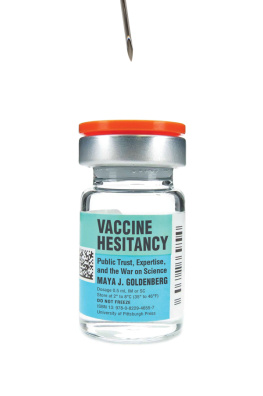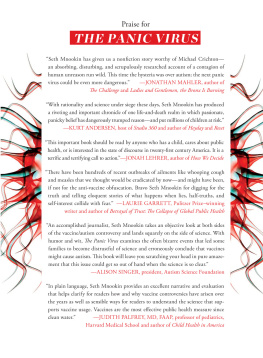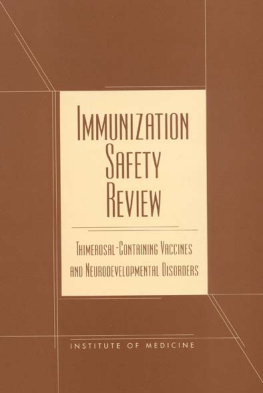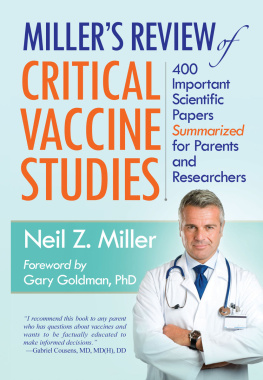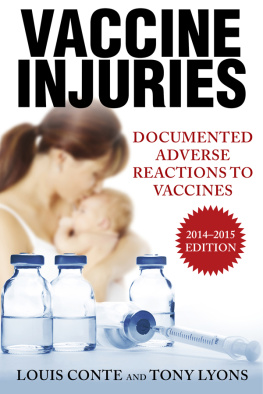Copyright 2014 by Robert F. Kennedy, Jr.
All rights reserved. No part of this book may be reproduced in any manner without the express written consent of the publisher, except in the case of brief excerpts in critical reviews or articles. All inquiries should be addressed to Skyhorse Publishing, 307 West 36th Street, 11th Floor, New York, NY 10018.
Skyhorse Publishing books may be purchased in bulk at special discounts for sales promotion, corporate gifts, fund-raising, or educational purposes. Special editions can also be created to specifications. For details, contact the Special Sales Department, Skyhorse Publishing, 307 West 36th Street, 11th Floor, New York, NY 10018 or .
Skyhorse and Skyhorse Publishing are registered trademarks of Skyhorse Publishing, Inc., a Delaware corporation.
Visit our website at www.skyhorsepublishing.com.
10 9 8 7 6 5 4 3 2 1
Library of Congress Cataloging-in-Publication Data is available on file.
Cover design by Brian Peterson
Cover image: Thinkstock
Print ISBN: 978-1-63220-601-5
Ebook ISBN: 978-1-63220-602-2
Printed in the United States of America
C ONTENTS
Preface
Vaccinations are among the most important advances in medicine in the last century. We have eradicated smallpox from the planet and dramatically reduced death and suffering from infectious disease around the globe.
I am aggressively pro-vaccine, as are the editor and introduction contributor of this book. I am a father and family physician. I have vaccinated my children. I have been vaccinated and recommend vaccination to my patients.
Critics of this book will quickly polarize the debate. It is easy to oversimplify the issue of Thimerosal into pro-vaccine or anti-vaccine, or to confuse this issue by debating whether Thimerosal causes autism, which has not been definitively proven. This is unfortunate, and detracts from a much simpler set of questions that are ultimately the subject of this scientifically dense book.
There is no debate that mercury in any form is toxic. Scientists may debate the differences in toxicity between different forms of mercury, such as ethylmercury (which is an ingredient in Thimerosal) or methylmercury (from fish). But all would agree that mercury is a potent neurotoxin.
There is also no debate about the dramatic increase in prevalence of neurodevelopmental disorders, over the last few decades, including learning disabilities, attention deficit disorders, and autism.
There may, however, be debate on the strength of the data and science implicating mercury in this increased prevalence of brain injury in children. These questions can never be adequately answered given the challenges of doing experimental studies on human subjects over long periods of time. Obviously, no ethical review board would ever approve a study in which children were purposefully exposed to mercury in order to test its toxicity. Population studies show correlations, but never prove causation, making it impossible to draw firm conclusions.
That leaves us with a very simple, moral question, and ultimately a very personal one. Because at some point in our lives, nearly all of us will have a child or grandchild who requires vaccinations. Or we will know a pregnant woman who will have to decide whether or not to get a flu shot that might contain mercury. All of us are people and parents first, and scientists and policy makers second.
So there is only one question that really matters:
Would you expose the unborn child or infant of a loved one to a vaccine containing mercury, a known neurotoxin, if there were other safer alternatives?
The answer to this question is simply common sense and requires no further scientific inquiry, but as Voltaire said, common sense is not so common.
If there were no other options, if it were a question of whether to vaccinate or not to vaccinate, then of course we would choose vaccination. But that is a false choice. There are 137 million children born each year in the world. Is our only option to subject them to a potent neurotoxin in their most delicate neurodevelopmental period? How can we best protect that future generation from preventable harm?
The arguments put forth that we cannot remove Thimerosal from vaccines are invalid. Thimerosal has already been removed from nearly all vaccines except the multidose flu vaccine in the United States. This was based on government recommendations and a call to action from many agencies and health organizations, as is well documented in this book.
However, Thimerosal still remains in nearly all the pediatric vaccines used in the developing world. There are effective alternative preservatives already in use (2-phenoxyethanol), and new ones can be developed. The Food and Drug Administration (FDA) banned mercury as a topical antiseptic (remember Mercurochrome?). And any medical products containing Thimerosal or mercury cannot be thrown in the garbage. The Environmental Protection Agency (EPA) considers them hazardous waste. Does it make any sense that even though Thimerosal is not safe to put on your skin, or to throw in the garbage, it is safe to inject into pregnant women and babies?
Cost considerations are also used as an argument to keep Thimerosal in vaccines. There is a small cost increase to use single-dose flu vaccines, but it is minor compared to the cost of neurodevelopmental disease in children. The global cost of taking Thimerosal out of all vaccines is $300 million a year, while the annual cost of autism in the United States alone is well over $100 billion. In the developing world, studies show that there is significant wastage of multidose vials, making single-dose vials comparable in cost.
There are other arguments. Some scientists we spoke to at the Department of Health and Human Services said that Thimerosal may contribute to the effectiveness of the vaccines. Any agent that increases vaccine effectiveness is referred to as an adjuvant. However, Thimerosal is approved for use only as a preservative, not as an active ingredient, and such use is illegal.
I have been involved in reviewing and contributing ideas and scientific references to this manuscript. I have also been involved in efforts to change regulatory and legislative policy to reduce potential harm from Thimerosal. I do not belong to any organization connected in any way with this issue. Nor do I have any personal or financial interest in this issue other than a scientific and moral one.
And, as a physician, my Hippocratic oath is to first, do no harm. We should practice the precautionary principle in medicine and avoid doing harm whenever possible. And given the simple fact that mercury is toxic, I can come to no other conclusion than this: we should immediately remove Thimerosal from vaccines and all other products used in medicine.
Mark Hyman, MD
West Stockbridge, Massachusetts
June 7, 2014
Introduction: Removal of Mercury from Vaccines in the Epoch of Error Correction
This book is aggressively pro-vaccine. Its focus is not on vaccines in any general way, but only on one particular ingredient, Thimerosal, which contains ethylmercury.
Although the conversation surrounding vaccines, as with any medical issue, has many facets (especially when you consider technical issues), many people are aware of only two black-and-white options: you are either pro-vaccine, or anti-vaccine. If you are a reader who wishes to absorb and evaluate the information in this book, I ask you to consider that, at minimum, there is a third alternative: you can be pro-vaccine and at the same time seek to improve the vaccine program.

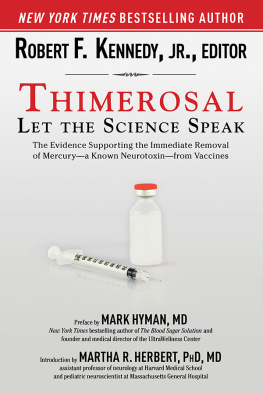
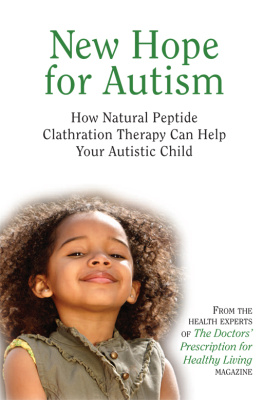
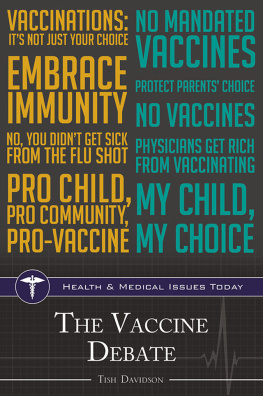
![Robert F. Kennedy - Thimerosal; Let the Science Speak [vaccine]](/uploads/posts/book/264361/thumbs/robert-f-kennedy-thimerosal-let-the-science.jpg)
